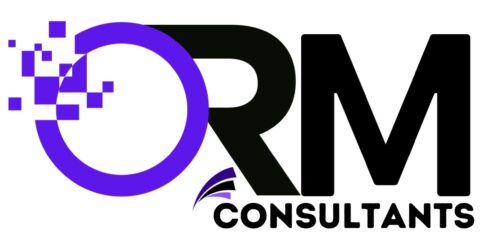Introduction: Just Because It’s Public Doesn’t Mean You’re Defined by It
Your name appears online. A quick search reveals a court case—a name, a date, a charge. You’ve moved on with your life, but every time someone searches your name, that record persists—often ranking high on Google and following you into job applications, loan approvals, or even casual Google searches.
This is the invisible weight of public court records. While they can serve the public interest, they can also hinder personal growth, especially when the records are old, minor, or sealed—but still accessible. That’s why many are turning to efforts to remove court records—to reclaim their digital identity, privacy, and future.
Why Court Records Stay Online Longer Than You Want
The U.S. legal system largely operates under a principle of transparency: court documents are considered public records, often accessible through online portals or third-party aggregators. While this transparency is rooted in accountability, it comes at a cost:
- Search engines elevate old records because of relevance and backlinks, keeping them visible.
- Third-party websites republish records without sensitivity to context or currency.
- Even expunged or dismissed cases can appear due to lag in updates or outdated feeds.
In a world where hiring managers, landlords, and even your new social circle might Google your name, this open archive can feel like a trap—anchoring you to your worst moments.
The Real Fallout: How One Record Can Follow You Everywhere
Consider these scenarios:
- A young professional is passed over for a job because a dismissed traffic violation appears prominently in search results.
- An entrepreneur can’t secure financing since lenders pull up record links—even if no conviction occurred.
- A divorced individual struggles to date, as potential matches dig up an old restraining order (later dropped), without knowing the full story.
These are more than inconveniences; they’re tangible setbacks. And the erosion of trust isn’t always rational—it’s often instantaneous.
Why It’s So Hard to Remove Court Records
Unlike social posts or outdated news stories, court records live in a legal landscape that resists removal:
- Public domain rules: Courts generally publish records openly unless a law or judge orders otherwise.
- Expungement takes time: Even where you’re eligible, legal procedures may span months or years.
- Web crawlers don’t differentiate: Search engines and websites often crawl and re-publish records—even after removal attempts.
- Jurisdiction variation: Removal policies differ by state—from completely open to selectively sealed or expunged cases.
These hurdles mean your battle to remove court records isn’t simply digital—it’s rooted in the law itself.
How Individuals Can Actively Seek Removal or Suppression
While the process is not instant, there are legal and strategic paths to minimizing the damage:
1. Legal Recourse: Expungement, Sealing, or Redaction
- Certain misdemeanors or juvenile cases can be formally expunged in many states.
- In some cases, you may be eligible to seal documents—making them inaccessible to public or digital retrieval.
- If successful, file removal requests with court clerks and search engines to reflect updated status.
2. DMCA Takedowns & Privacy Requests
If private info is exposed (e.g., SSN in online filings), you may issue takedown notices to remove content from search results or from websites.
3. SEO & Content Suppression
Create high-quality content—personal bios, press, articles—that outranks unwanted records. Over time, these links displace damaging ones.
4. Reputation Management Services
Professional firms specialize in:
- Filing and managing expungement requests.
- Handling jurisdictional complexity.
- Publishing curated content to suppress legacy records.
- Negotiating with data aggregators.
5. Targeting Third-Party Aggregators
Identify sites hosting your records, and submit formal removal requests—particularly on content farms that may not be legally certified to host court documents.
Proactive Steps: Minimizing Future Risks
After addressing existing issues, take steps to safeguard your online presence:
- Monitor regularly: Set alerts on your name plus keywords like “criminal,” “arrest,” or “court.”
- Build a positive online presence: Engage on professional platforms and showcase your current accomplishments.
- Know your rights by state: Some states offer automatic record destruction after eligibility—but you may need to apply.
- Work with employers or schools: Provide context proactively if asked about court history, showing transparency and remediation efforts.
- Use privacy-first tools: Tools like “Right to be Forgotten” (in some jurisdictions) or data scraping services that respect removal requests.
A Detailed Example: From Record to Renewal
Case Study: David’s Expungement Journey
David had a minor conviction from his early 20s that he later expunged. Yet, years later, it surfaced in online background checks—clients and lenders hesitated. He took action:
- Hired a lawyer to file for expungement in his local state (6-month process).
- After approval, submitted updated documentation to the courthouse clerk requesting sealing/redaction.
- Sent take-down requests to major background check firms via DMCA and privacy channels.
- Commissioned blog articles (guest posts on legal sites, LinkedIn content) that rank higher than the 10-year-old record.
- Three months later, searches now show David’s professional materials—almost completely replacing the old record.
While the process isn’t quick, it significantly restored his confidence and career trajectory.
When You Might Need Professional Help
Not every case is straightforward. Consider professional assistance if you:
- Don’t know if your records qualify for expungement.
- Live in a state with burdensome removal processes.
- Have multiple jurisdictions or charges listed.
- Are overwhelmed by data aggregator takedown requests.
- Need strategic suppression—not just removal—for legacy content.
Experts can help you navigate red tape, handle documentation, and rebuild your online footprint effectively.
Conclusion: Your Past Shouldn’t Define Your Future—But It Often Does
Court records are a unique challenge—they’re rooted in law, yet they have real-world implications in our digital age. While removal or suppression can be difficult, you have tools at your disposal: legal advocacy, content strategy, and reputation management.
Rather than letting outdated charges linger in public memory, consider removing court records as an act of reclaiming your identity—not just digitally, but professionally and personally.




Leave A Comment